A Mercer University professor is working to save a rare plant from extinction.
For the past decade, Dr. Heather Bowman Cutway, professor of biology in the College of Liberal Arts and Sciences, has been researching the fringed campion. A federally endangered species, small populations of the wildflower grow in the midstate and along the Georgia-Florida border.
“I’ve been piecing bits and pieces together because when plants are rare, often we don’t know a lot about them,” she said. “This is true with this plant. We still don’t quite know what it needs. We know the things that threaten them, but knowing exactly what we can do to bring their numbers up is still a bit of an issue.”
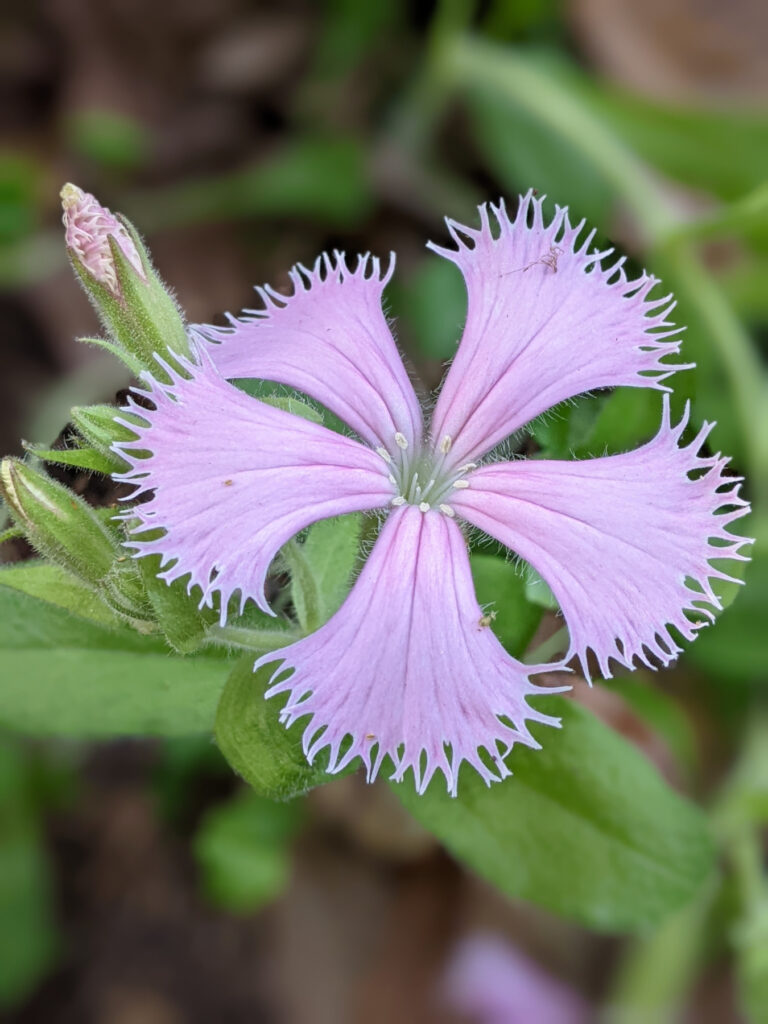
Logging and development contribute to the destruction of the fringed campion’s habitat. Invasive species also can overtake the low-growing wildflower.
Scientists worry about endangered species because they can be an indicator of what’s going on in habitats on a larger scale, Dr. Bowman Cutway said. This one rare plant may become extinct now, but what’s the next species to be threatened? And what does that say about our environment?
“Sometimes we, in conservation biology, think about it as rivets on a plane. When you put together a plane, you have lots and lots of rivets. And if one rivet breaks, the plane still can fly,” she said. “But as you keep breaking rivets and you keep breaking rivets, at what point does that impact start to happen?”
Dr. Bowman Cutway’s research has three main prongs: monitoring, studying and propagating.
She often visits fringed campion populations to monitor whether the number of plants is increasing or decreasing and note any issues. In addition, she is studying why the wildflower is not spreading well on its own. To that end, she’s working on a pilot project with the computer science department to use cellphone cameras to help track pollination.
She also has been working on establishing new plant populations in habitats where they would naturally grow. She has planted the flowers near the greenhouse at Mercer and at Ocmulgee Mounds National Historical Park.
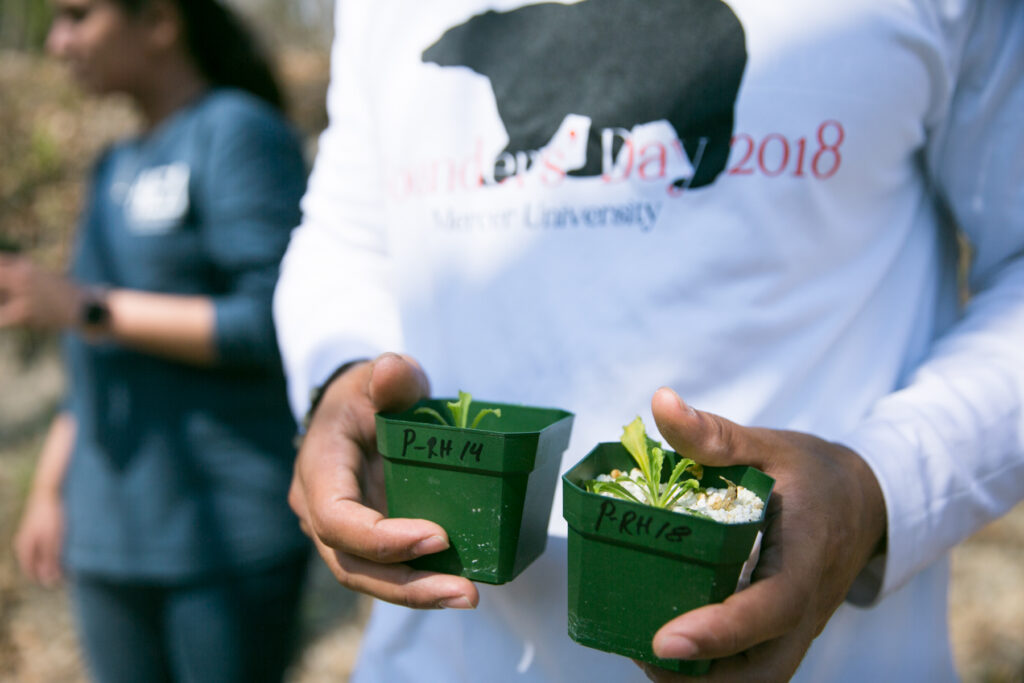
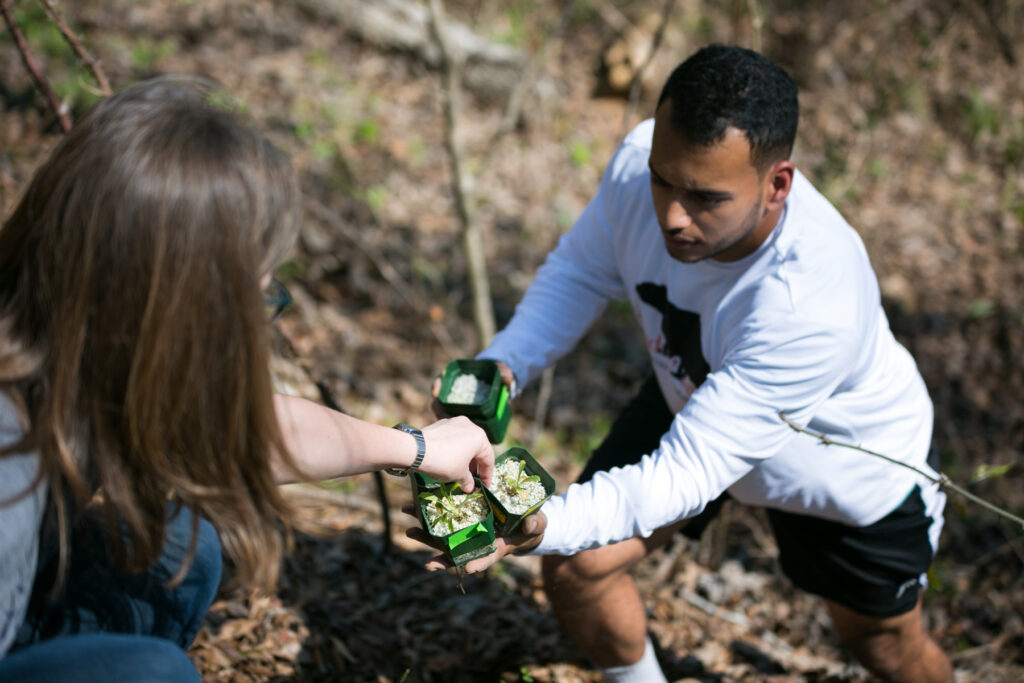
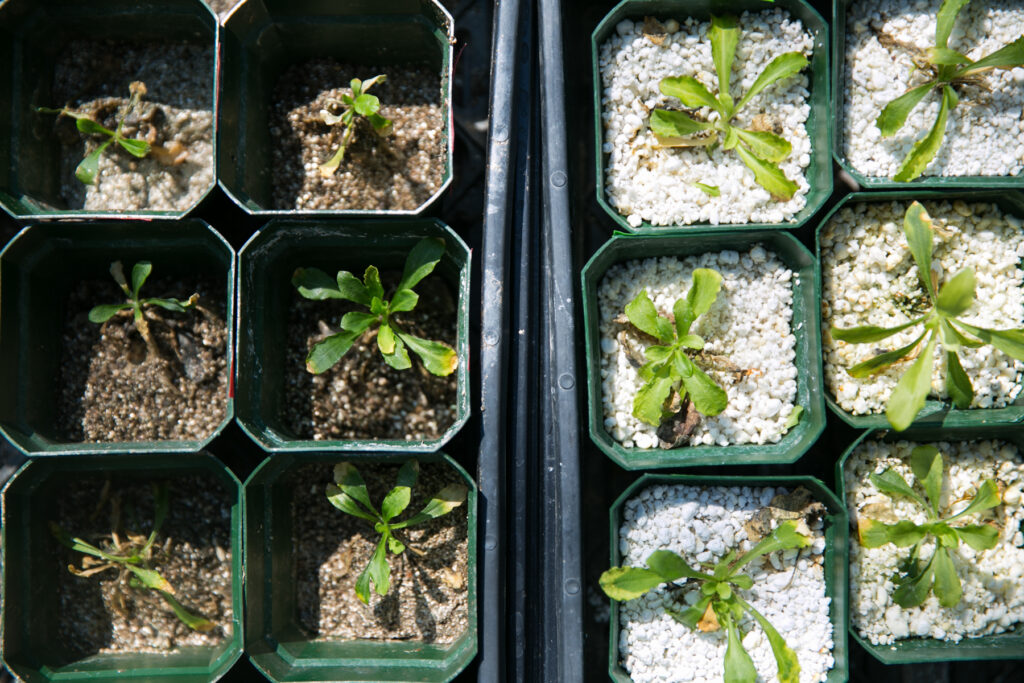
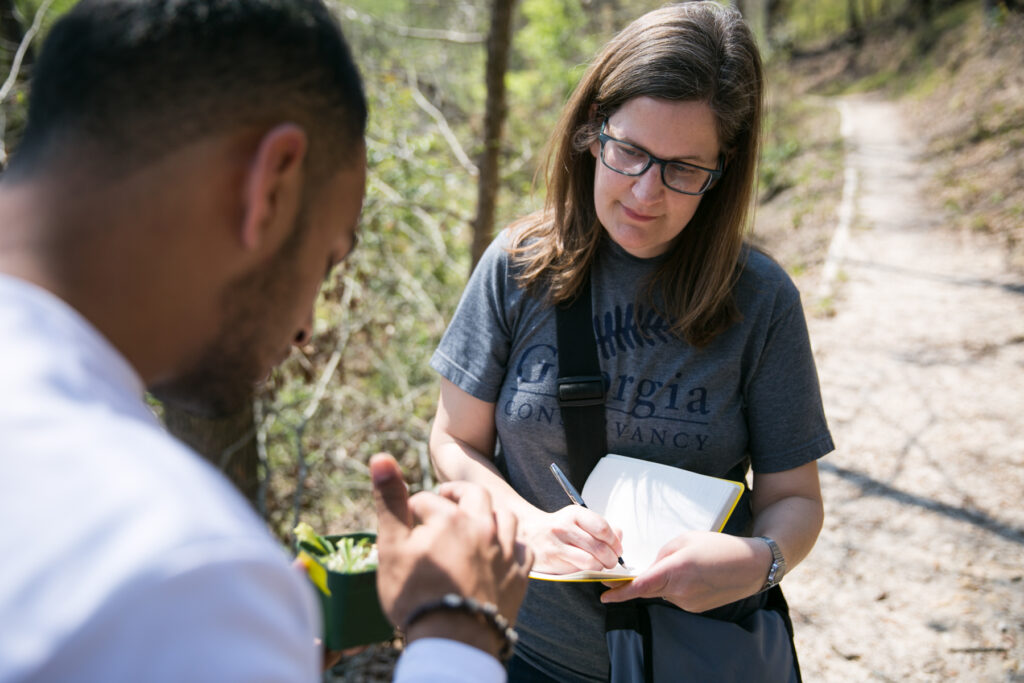
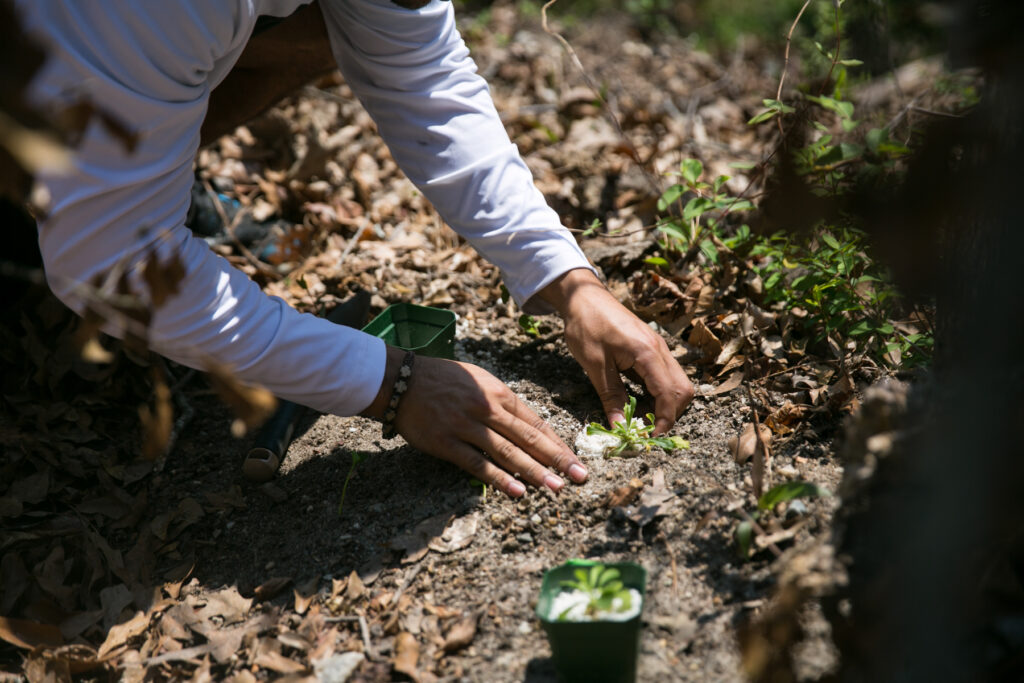
The Georgia Department of Natural Resources has awarded Dr. Bowman Cutway a $3,750 grant to support and expand her work. The funds are part of a larger $780,000 Fish and Wildlife Challenge Grant awarded to the Georgia Department of Natural Resources to safeguard 14 federally endangered plants by sampling, growing and establishing new populations in protected locations.
The award is significant because rare plants often are second to rare animals when it comes to safeguarding an endangered species.
“I am happy as a researcher to be recognized that the work that I’m doing is a significant help to boosting the possibility of this plant’s survival,” Dr. Bowman Cutway said.
The grant will help support and expand the fringed campion populations that she established at Mercer, so, hopefully, they can be replanted in different habitats where they can thrive, she said.
Mercer students have been involved in each stage of Dr. Bowman Cutway’s research, accompanying her on site visits, propagating plants in the greenhouse and helping establish a new population at the Ocmulgee Mounds. Ocmulgee is one of the few public sites where fringed campion grows.
“A lot of my time is spent in private property relations, reaching out to private property owners, getting permission to work on their land, getting permission to have students,” she said. “That is a big lesson to the students that this is how a lot of conservation work happens, in Georgia in particular. Most of our property is private property, and so that means every bit of my research involves people outside the Mercer community giving us permission to be there and do this research.”
Dr. Bowman Cutway shares her findings with the U.S. Fish and Wildlife Service and Georgia Department of Natural Resources.
“They are often monitoring tens, twenties, if not hundreds of different species at the same time. They don’t have the time to go out to these populations year after year and see these differences,” she said. “They really appreciate that I’m able to take a deep dive that they just can’t, and that information then can inform their management.
“The big goal is to keep a plant from going extinct, and that’s going to take lots of people.”









